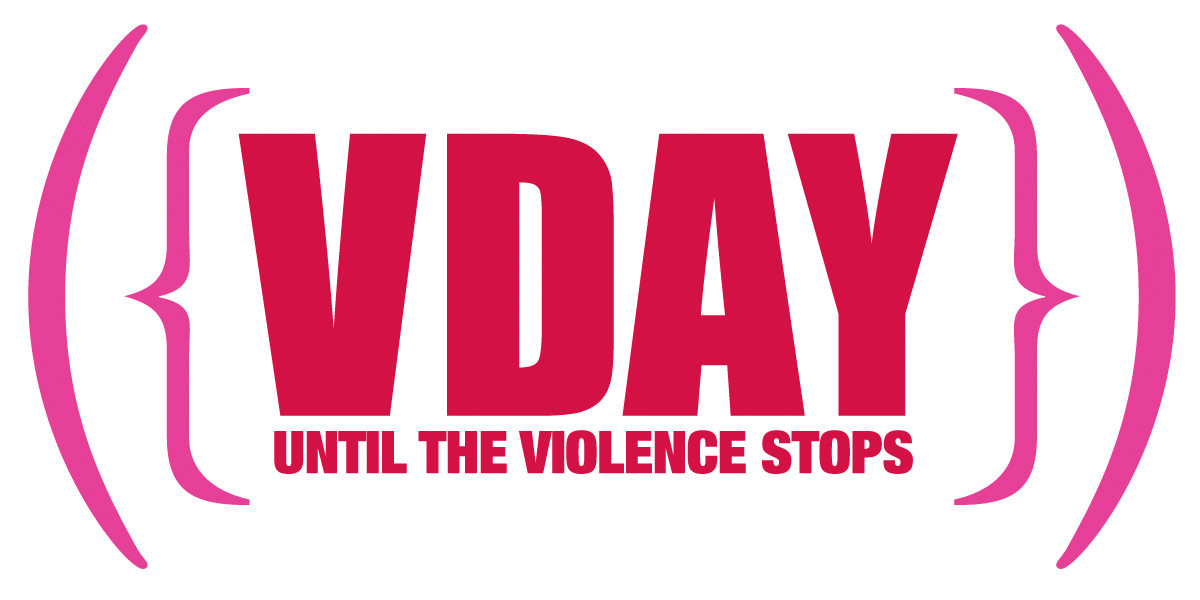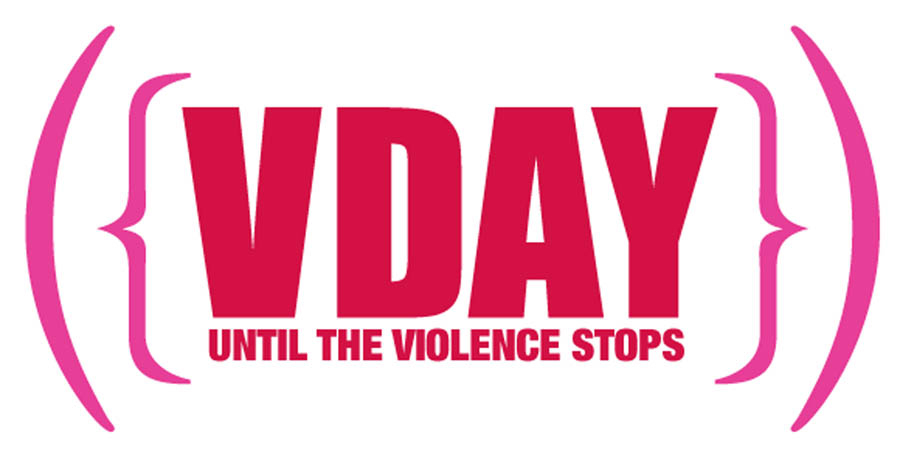22 Oct Why I as a Black Woman Should Care About Afghanistan
(Reposted from onebillionrising.org)
By Evangeline Lawson
Evangeline Lawson is a southern California-based writer and content creator. You can learn more about her and her work at www.evangelinelawson.net
25 September was a typical cloudless, azure-skied day, but oddly quiet on a Saturday afternoon on Sunset Boulevard in Los Angeles. The bar-hopping crowd had yet to awaken from their Friday-night stupors and the luxury cars had not yet congested the streets. As a bustling assembly grew, the weather was not the only thing of beauty. Women with fair to brown skin, and hues in between, with hair pulled in ponytails or in curly afros, were intermixed with men of all ages and backgrounds; gathering together to RISE For and With the Women of Afghanistan. The red, black and green colors of Afghan flags as well as posters scrawled with vibrant words imploring people to support the cause, were being clutched by supporters; diverse, multi-ethnic, and varied gender-identifying people, rallying against the mistreatment of women and girls in Afghanistan.

Image courtesy Ryan Shropshire/Getty for One Billion Rising
Masked, with ebony coils piled on top of my head, and my water bottle in tow, I was one of them.
As we marched down the street from Sunset to San Vicente Boulevard, an affluent part of L.A. known for acceptance of those who are deemed outer fringed or disenfranchised, you could hear the yells through the face masks: “Equality for women and girls!” The rainbow flags flying outside Rocco’s WeHO reminded me of the value of using your voice to fight for human rights.
I thought about how empowering it is to be able to exercise my right to protest, but at the same time how ridiculous it feels to have to advocate for simple recognition—the reminder that you exist in the world and are therefore worthy of freedom and respect. I reminisced on the hours of footage I’ve watched of civil rights protests here in the United States. People marching for opportunities for Black people and women in order to secure the basic rights I am entitled to, but still have to fight for. Making me wonder why even a glimmer of liberty requires movements like these.
The walk was not long, but enough to gain some attention from passersby. However it was the rally in West Hollywood Park that struck me. The stage was flanked with large words: “RISE For & With the Women of Afghanistan” on a bright red background. I was fascinated by the diversity of Afghan women present. Some wearing hijabs, others letting their dark, shiny locks fly free—more evident by the much needed breeze that would whisk in every now and again. I only saw a few children there. But their attendance reminded me of how miraculous it was that they could run around freely in that grassy patch, while the children living in Afghanistan could not bask in the fullness of their childhoods.
As important as it was for me to see the stunning variances present, the gathering was vital to the understanding of why I, as a Black, American-born woman, should care about what the women of Afghanistan are subjected to daily. Not just because of Taliban control. What Afghan women have been forced to deal with for the past several decades due to first Russian, then U.S. occupation. These occupations devastated Afghanistan by directly influencing an increase in violence with the influx of weapons. It also destabilized the economy—leaving over 70% of the people of Afghanistan currently living below the poverty level. This, combined with forced dress-codes, and traumatizing brutalization, leaves physical scars but also the mental anguish that your life is always in jeopardy.
In late August, after a 20-year presence in Afghanistan, U.S. forces abruptly pulled out of the region, leaving Afghans vulnerable to attack. It took Taliban militants 11 days to reclaim the entire country, forcing female students to burn books, women artists to destroy evidence of their creative expression, and a lot of people fled their homes to save their family’s lives. Like many around the world, I saw the horrifying images of people clinging to airplanes as they departed the airport in Kabul.
How desperate must you be to convince yourself that gripping onto a plane leaving your homeland is a viable escape plan?
In Afghanistan, violent oppression against women and girls is so prevalent, it has been referred to as one of the most dangerous places in the world for women and children to live. Not only are women not allowed to work outside of the home and girls not permitted to attend school, many women and girls are forced into marriage, a lot of them before the age of 16. Women and girls are victims of domestic abuse and brutal sexual violence. In reading about the plight of women and children in Afghanistan, I came across a story of a mother named Khadija who at 23-years-old decided to set herself on fire as an effort to escape her abusive husband. She survived with third-degree burns covering most of her body. However, many women and girls do not. In the last year, 46% of civilian deaths and injuries in Afghanistan have been among women and children.
According to UNICEF, Inc. and Malala.org, 129 million girls are out of school worldwide. In Afghanistan almost 3.7 million children are out of school and over half of them are girls. That is close to the 3.9 million people living in Los Angeles. I cannot imagine the entire population of Los Angeles being kept from an education. What would that mean for the rest of California and the United States in terms of quality of life, innovation, and equality?
One of the speakers present at the rally, Rina Amiri (Senior Fellow and Director of Afghanistan and Regional Policy Initiative at New York University’s Center for International Cooperation), provided context for why these systems of oppression are reinforced. In her calm but firm demeanor, she eloquently explained that the reason why Afghan women and girls are subjected to this devastating treatment, is because of the “ignorance that is created to perpetuate the treatment of Afghans.” She clarified that as the depiction of a people who are one-dimensional, absent of diversity in religion and culture and therefore not worthy of attention and care. Partly because some believe that Afghan’s faith (being a predominantly Muslim country) is the reason for their poor treatment.
Multimedia artist and activist Ariana Delawari brilliantly stated that the call to action was not simply to protest. Afghan women were not asking us to save them. What they were requesting was for us to come together in solidarity to “raise their unity and mighty voice,” in order to bring awareness to the conditions that they lived under. Fighting back the tears with her intense gaze, Delawari shared her personal stories of interacting with students over the years, contextualizing the education of girls and how that was negatively impacted when Afghanistan became occupied by the Taliban. Through her, I visualized artists afraid to paint and musicians afraid to sing aloud, out of fear of being slaughtered.
A perfect segue to this moment was when Hameeda Uloomi confidently stepped up to the microphone. She was a product of Afghan schools until her family had to flee as refugees. The dynamic 19-year-old founder of Afg-Aid delivered an impassioned speech as she gave account of the positive impact education has, but the subsequent void created by it being abruptly taken away.
What impressed me was not only her passion, but commitment.
At 19, I was navigating the university system and trying to pass college-level chemistry. Truly unaware of how many women worldwide would never have the chance. I was invested in humanitarian causes and even volunteered regularly, but at that age it never crossed my mind to start my own organization.
Hameeda created Afg-Aid in response to her personal experience as a refugee. She did not forget the struggles, even though she was living a safer, less oppressed existence. Hameeda remained committed to the women and girls of Afghanistan. Her story amplified the privileges granted just by being born American. But also the similarities in the struggle for equality under a flawed system, that I have witnessed being a Black woman.
There is a reckless disregard for women and girls around the world. Women of color are often ranked last in the means for survival. Black women in the U.S. face disproportionately higher poverty rates, preventable illnesses, and lower rates of education compared to White women. We are also more likely to experience domestic violence and more likely to be murdered by men.
More than 40% of Black women will experience domestic violence in their lifetime, according to the Institute for Women’s Policy Research’s report The Status of Black Women in the United States, compared to 31.5% of other women. Women who are Black are 2.5 times more likely to be murdered by men than women who are White and over 90% of those cases are by someone the victim knows. We are deemed less worthy of finding when we come up missing and even when we experience violence at the hands of police, we receive less media attention.
I know this information because I am lucky to have been raised by a mother who is college-educated, and feel it is my duty to expand on her foundation and share what I learn. However, perceived freedom does not exempt us.
This connection was made clearer when Sultana Parvanta discussed mortality rates during childbirth. In Afghanistan women are only to be treated by female doctors, therefore making quality and reliable OBGYN services challenging because female doctors are in limited supply. As a result, the mortality rate for women during childbirth is high when compared to other nations. The same can be observed for Black women in the U.S. despite technological advancements and perceived gender equality.
We too experience disproportionate childbirth mortality rates. With pregnancy-related death three times more likely than our White counterparts.
Dr. Martin Luther King Jr. poignantly said, “Injustice anywhere is a threat to justice everywhere.” Many of us believe that the rights and privileges granted to us will always remain. That somehow laws will never change and threaten our freedoms. However, as we have recently witnessed in Texas, with the passing of a sexist law that controls women’s bodies, that is far from true.
Thanks to V-Day and One Billion Rising, RISE For and With the Women of Afghanistan brought together many dynamic, influential allies who were using their platforms to educate us about the struggles of Afghan women. They shared how their lives intersected and through testimonials, how the women of Afghanistan were personally impacted. Some were tear-filled whispers delivered as a voicemail recording, like the poem from a friend that Hameeda shared.
I wished I could understand what she was saying, but the message was in Dari. However hearing this woman shakily recite her verses aroused a lot of emotion. I was nervous for her because the unsteady delivery sounded both frightened and disheartened. I pictured a young woman crouched in a corner self-consoling by reciting words that were encouraging, but subsequently dangerous.
Overall, the strongest statement made was who I saw. The mostly Afghan, brilliant, and resilient speakers present that day. As they all were the embodiment of the great human benefit of educating and empowering women and girls.



